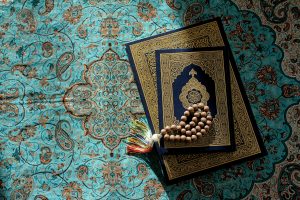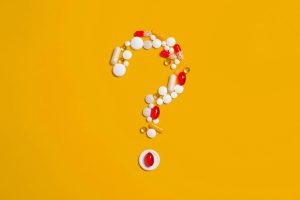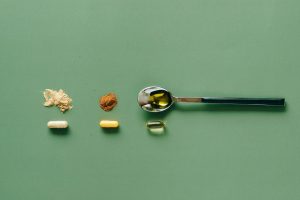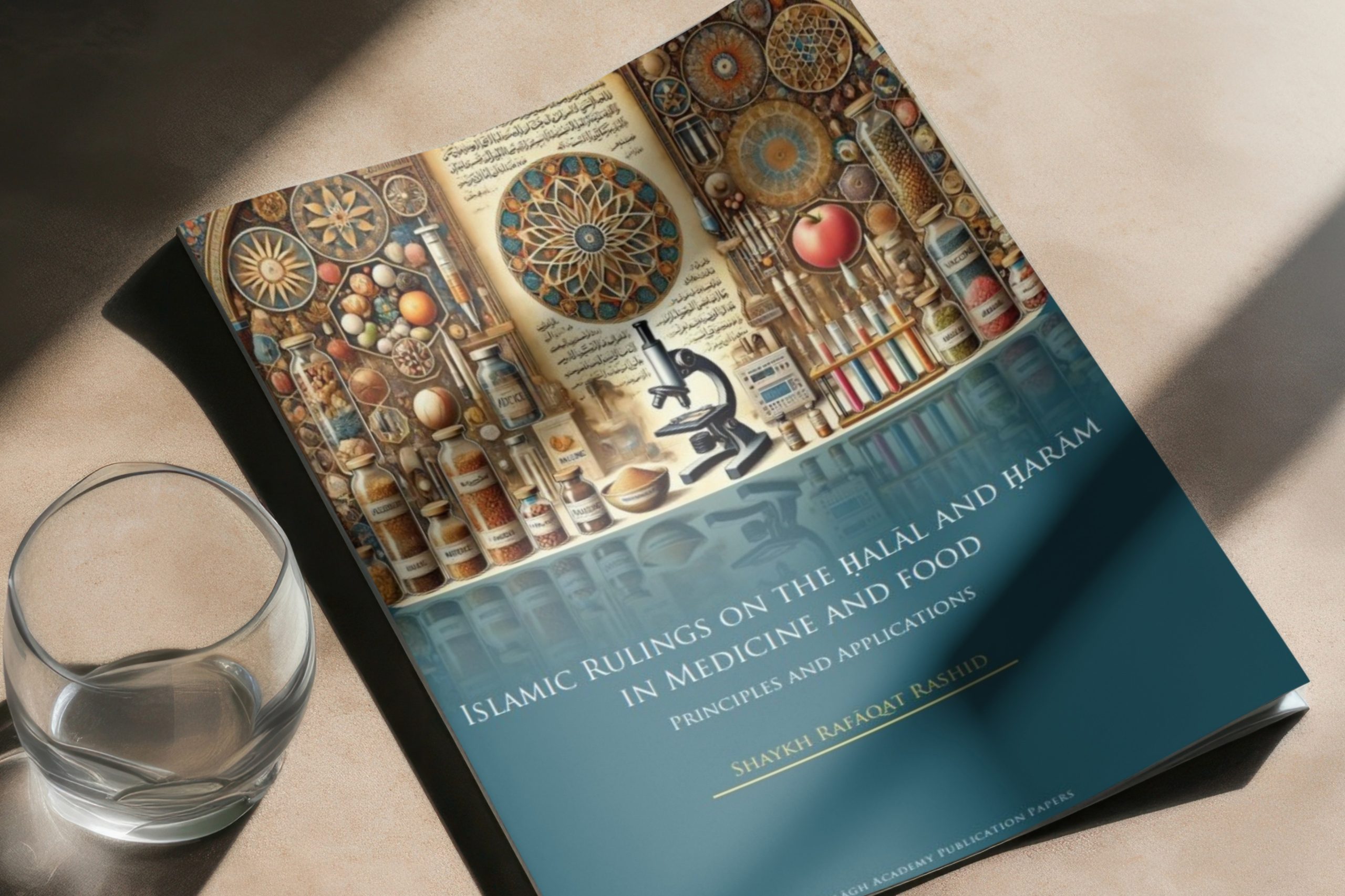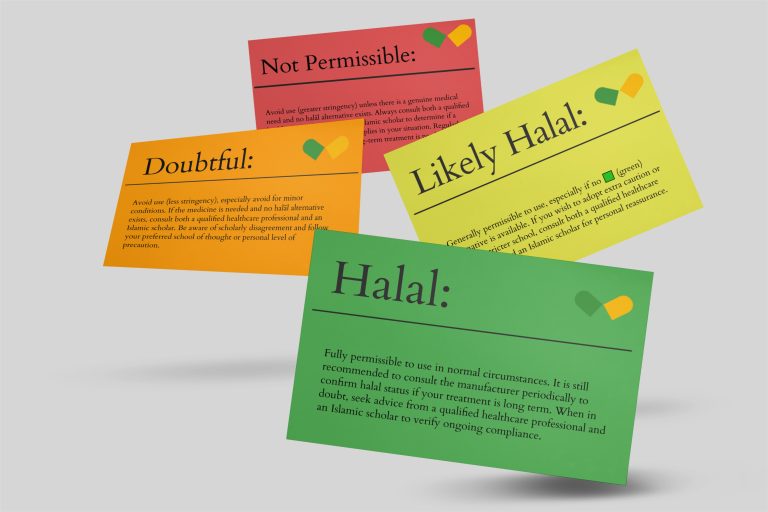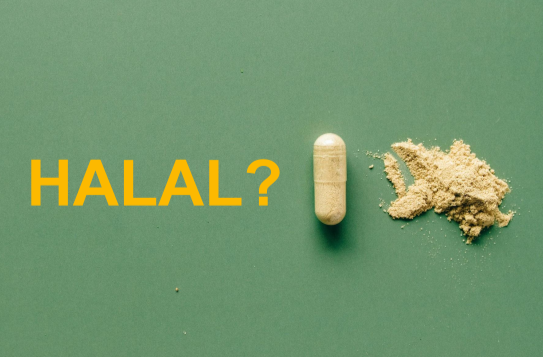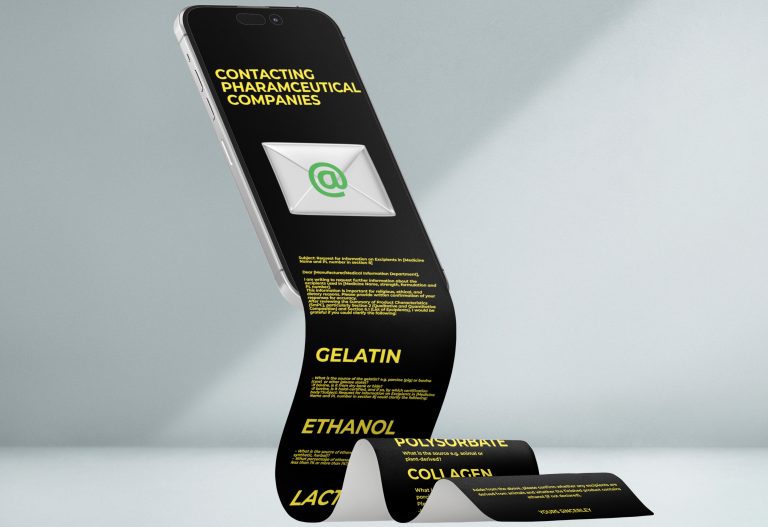Gelatin in medicines: additional Islamic information
| Source | Hanafi | Maliki | Shafiʿi | Hanbal |
|---|---|---|---|---|
| Cow (Islamically slaughtered) (including its skin, bones, connective tissue) | ✅ Halal | ✅ Halal | ✅ Halal | ✅ Halal |
| Cow (non- Islamically slaughtered) (including its skin, connective tissue) | ❌Majority consider haram to consume* | ❌Majority consider haram to consume* | ❌Majority consider haram to consume* | ❌Majority consider haram to consume* |
| Cow hide (non- Islamically slaughtered animal that has undergone the tanning process**) | ❌Majority consider haram to consume* Note: Tanned cow hide/skin is considered legally pure (tahir) and halal to use generally (e.g. shoes and furniture) but not to consume. | ❌Majority consider haram to consume* | ❌Majority consider haram to consume* Note: Tanned cow hide/skin is considered legally pure (tahir) and halal to use generally (e.g. shoes and furniture) but not to consume. | ❌Majority consider haram to consume* |
| Dry bone of any halāl animal e.g. cow or sheep (non- Islamically slaughtered) | ✅ Halal Some scholars say this would be permissible (because there is no blood in dry bone). | ❌Haram Maliki scholars consider bones legally impure (najis) unless taken from an Islamically slaughtered animal. | ❌Haram | ❌Haram Hanbali scholars consider bones legally impure (najis) unless taken from an Islamically slaughtered animal. |
| Sheep (Islamically slaughtered) | ✅ Halal | ✅ Halal | ✅ Halal | ✅ Halal |
| Sheep (non- Islamically slaughtered) | ❌Majority consider haram to consume* | ❌Majority consider haram to consume* | ❌Majority consider haram to consume* | ❌Majority consider haram to consume* |
| Pig | ❌Majority consider haram to consume* | ❌Majority consider haram to consume* | ❌Majority consider haram to consume* | ❌Majority consider haram to consume* |
| Fish | ✅ Halal | ✅ Halal | ✅ Halal | ✅ Halal |
*However, there is a difference of opinion as some scholars say if the gelatin undergoes transformation (istihala), it may be considered legally pure (tahir) and permissible (halal ). The majority do not agree that transformation (istihala) takes place. This allows for some flexibility, but this is a minor opinon.1
** Tanning process – the process that treats the collagen in animal skin and hides with a chemical agent to make leather2
What is istihala (transformation)?
Istihala is the complete chemical transformation of a legally impure (najis) substance into a completely new substance that is considered legally pure (tahir). The latter substance no longer retains the chemical properties of its former state (i.e. there has been a change of the original substance in form, colour, smell, taste, nature, effect, name, use, properties and is irreversible). The substance can undergo this chemical change through scientific or natural means.3 An example of istihala includes turning wine into vinegar.4
For more detailed information on istihala, you can refer to this e-book.
Difference of opinions
There is a difference of opinion amongst scholars on whether gelatin sourced from animals, such as sheep and cows, that are not Islamically slaughtered is halal :
- If the source of gelatin is from hide and undergoes the tanning process -the majority of scholars say this would be halal to use generally (e.g. for making footwear and furniture) as it is considered legally pure (tahir), but would be haram to consume.5
- If the source of gelatin is from dry bone – some scholars say this would be permissible (because there is no blood in dry bone) 5
There is a difference of opinion amongst scholars on whether animal gelatin undergoes transformation (istihala). However, most of the contemporary scholars declare animal gelatin as haram because:
- The chemical change that takes place during the manufacturing processes of gelatin is considered insignificant – the collagen in porcine (pig) (i.e. the former substance) is almost chemically identical to gelatin (i.e. the latter substance)5 6 7 8
Contemporary rulings & fatwas on gelatin9
| Islamic authority | Porcine (pig) gelatin | Bovine (cow) gelatin (not Islamically slaughtered) | Bovine (cow) gelatin (Islamically slaughtered) |
|---|---|---|---|
| Assembly of Muslim Jurists of America (AMJA) | ❌Haram | ❌Haram | ✅ Halal |
| Dar al-Ifta al-Misriyyah (Egypt) | ✅ Halal (based on transformation), varied opinion | ✅ Halal (based on transformation) | ✅ Halal |
| European Council for Fatwa and Research (ECFR) | ✅ Halal (based on transformation), varied opinion | ✅ Halal (based on transformation) | ✅ Halal |
| Islamic Food & Nutrition Council of America (IFANCA) | ❌Haram | ❌Haram | ✅ Halal |
| Indonesian Ulema Council (MUI) | ❌Haram | ❌Haram | ✅ Halal |
| International Islamic Fiqh Academy (IIFA) | ❌Haram | ❌Haram | ✅ Halal |
| The Islamic Fiqh Academy of India (Resolution 66.1) | ✅ Halal (based on transformation), varied opinion, but majority Ifta’s in Indo-Pak subcontinent consider it haram) | ✅ Halal | ✅ Halal |
| JAKIM (Malaysia) | ❌Haram | ❌Haram | ✅ Halal |
| Majlis Ugama Islam Singapura (MUIS) – Islamic Religious Council of Singapore | ❌Haram | ❌Haram | ✅ Halal |
| Muslim Judicial Council (South Africa) | ❌Haram | ❌Haram | ✅ Halal |
| Saudi Arabia’s Permanent Committee for Islamic Research and Ifta’ | ❌Haram | ❌Haram | ✅ Halal |
<— go back to ‘Gelatin in medicines’ page
⚠️ Important messages for patients
- Always take or use your medicine(s) exactly as directed or prescribed by your healthcare professional (HCP), such as your doctor or pharmacist
- Do not stop, delay, change or alter the way you take or use your medicine(s) without first discussing it with the HCP who prescribed or supplied it to you
- Always consult your HCP if you have any questions or before making any decisions about your treatment
- For Islamic guidance, seek advice from your local Imam or a trusted Islamic scholar – ideally someone with relevant knowledge and expertise in the fiqh (Islamic rulings) of medicines
- Use the information gathered to make an informed decision together with your HCP and, if needed, your local Imam or trusted Islamic scholar
Disclaimer
- This resource is for educational purposes only. It does not constitute clinical, medical, or professional healthcare advice and should not replace individual clinical judgement or qualified religious guidance
- Always consult your doctor, pharmacist, or other healthcare professional regarding your own medical conditions or for advice on treatment options
- Healthcare professionals remain fully responsible and accountable for decisions made within their own scope of practice.
References
- Comprehensive List of 40 Animal-Derived Excipients in Medication by Shaykh Dr Rafaqat Rashid ↩︎
- Benedict Nnachi Alum (2024). Tannins and Leather: Chemistry, Tanning Processes, and Environmental Impacts. NEWPORT INTERNATIONAL JOURNAL OF SCIENTIFIC AND EXPERIMENTAL SCIENCES, 5(3):33-37. https://doi.org/10.59298/NIJSES/2024/10.5.333337 ↩︎
- Siddiqi, Nasrullah. (2020). Comparative Study of Istihalah Shariah and Chemical Changes. WHS 2020. 89-94. Accessed 27.1.2025 from: https://www.researchgate.net/publication/354339446_Comparative_Study_of_Istihalah_Shariah_And_Chemical_Changes ↩︎
- Jamaludin, Mohammad & Ramli, Mohd Anuar & Hashim, D.M. & Ab Rahman, Suhaimi. (2012). Fiqh Istihalah: Integration of Science and Islamic Law. Revelation and Science. 2. 49-55. Accessed 27.1.2025 from: https://pmc.ncbi.nlm.nih.gov/articles/PMC2014957/ ↩︎
- Al Balagh Academy Fiqh of Other Haram Ingredients and Excipients by Mufti Sarfaraz ↩︎
- Encyclopaedia of food colour additives, Burdock (1997) vol. 1 pg.1165 ↩︎
- Encyclopaedia of Pharmaceutical technology, J. Swarbick (2007) pg. 1883 ↩︎
- Hides and Skin for the tanning industry, Leach (1995) pg. 65 ↩︎
- Siddiqi, Nasrullah. (2020). Comparative Study of Istihalah Shariah and Chemical Changes. WHS 2020. 89-94. Accessed 27.1.2025 from: https://www.researchgate.net/publication/354339446_Comparative_Study_of_Istihalah_Shariah_And_Chemical_Changes ↩︎
Further reading
Note: Some organisations may have multiple websites or online representations. The links below are based on the most referenced official sites.
- Permanent Committee for Scholarly Research and Ifta (Saudi Arabia) – official Saudi body responsible for issuing fatwas and conducting Islamic research under the supervision of the Council of Senior Scholars.
- Assembly of Muslim Jurists of America (AMJA) – an independent, nonpartisan, nonprofit organization established to provide Islamic jurisprudential guidance to Muslims living in the west
- Dar al-Ifta al-Misriyyah (Egypt) – Egypt’s official Islamic legal research centre, issuing fatwas and providing guidance on Islamic law
- European Council for Fatwa and Research (ECFR) The 23rd Ordinary Session of The European Council for Fatwa and Research final statements – ECFR provides collective juristic opinions (fatwas) to address the needs of Muslims in Europe, facilitating their integration while preserving their Islamic identity
- Islamic Food and Nutrition Council of America (IFANCA) Gelatin: Manufacturing, Uses, Health Affects, and Issues of Halal/Haram – IFANCA is a global leader in halal certification, providing services to industries and consumers to ensure compliance with halal standards
- Indonesian Ulema Council (Majelis Ulama Indonesia – MUI) – MUI is the top Islamic clerical body in Indonesia, responsible for issuing fatwas and providing guidance on Islamic matters to Indonesian Muslims
- International Islamic Fiqh Academy (IIFA) Transmutation and Dilution of Additives in Food and Medication – IIFA is a universal scholarly organization and a subsidiary organ of the Organization of Islamic Cooperation (OIC)
- The Islamic Fiqh Academy of India – deliberates on contemporary issues to provide juristic decisions relevant to the Indian Muslim community
- Department of Islamic Development Malaysia (JAKIM) – the Malaysian government agency responsible for Islamic affairs, including halal certification and the issuance of fatwas
- Majlis Ugama Islam Singapura (MUIS) – Islamic Religious Council of Singapore – MUIS oversees the administration of Muslim affairs in Singapore, including halal certification, mosque management, and issuing fatwas
- Muslim Judicial Council (MJC) (South Africa) – MJC serves the Muslim community in South Africa by providing religious guidance, halal certification, and dispute resolution

